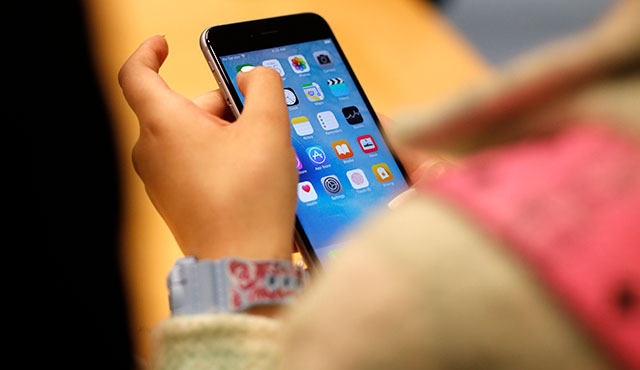The American Academy of Pediatrics recommends that children should have just two hours of daily screen time daily. Time magazine says half of kids ages 6- to 18-years-old exceed that amount.
Sixteen percent spend more than four hours a day in front of a screen; more than 50 percent of children under age 8 have access to a smartphone or tablet.
With all that exposure, how can Catholic parents keep their children from being swallowed by violent video games, chatting late into the night on social media, or consuming pornography on their computers?
Psychiatrist Dr. Aaron D. Kheriaty, associate clinical professor and director of UCI Health’s Medical Ethics Program, says parents must consider screen time on any device as a potential rival of the faith, morals and values they are trying to teach their children.
“Parents need to set limits,” Dr. Kheriaty explains. “Not to be unreasonable or punitive, but when culture has gone off the deep end we need to behave counter-culturally to ensure our kids have a normal, healthy environment at home.”
That doesn’t mean that there isn’t good content to be found online, in theaters, and on TV, he adds. He and his 12-year-old son just watched the Steven Spielberg film “Lincoln,” and were fascinated – and now his son is consuming Ken Burns’ “Civil War” documentary series. “These are good films with great content. But most of the time you are swimming against the current to try to manage these things.”
In Dr. Kheriaty’s opinion, a child should be 18 and on the way to college before owning a cell phone. Even then, he says he would ensure that controls are installed to monitor social media time, late-night video gaming, and other behaviors that threaten mental and physical health and student success. “These devices are quite addictive. Adults who use them know this is true.”
Recently Dr. Kheriaty generated controversy when he spoke at a Catholic high school and declared that marijuana use would have a less negative effect on adolescents than a smartphone.
“Screen time is bad for children’s physical and mental health,” he declares. “For adolescents, there is a direct linear relationship between smartphones and poor mental health outcomes, including depression and anxiety.” Using a cell phone excessively, he notes, is like putting unhealthy things in one’s body.
Parents concerned about their children’s media consumption can consult several websites to check on content before their kids consume it. In addition, Dr. Kheriaty notes, he uses the entertainment site IMDB, which offers a useful guide with detailed information about film content. Dove.org, too, offers family-friendly information on films, television programming and video games from a Christian point of view.
The issue of kids’ media consumption hasn’t been studied enough for scientists to offer parents adequate guidelines, notes Dr. Jean M. Twenge, professor of psychology at San Diego State University. In a recent story in Atlantic Monthly, Dr. Twenge – an author of more than 140 books and articles – warns that the impact of screen time goes far beyond the usual concerns about curtailed attention spans.
“The arrival of the smartphone has radically changed every aspect of teenagers’ lives, from the nature of their social interactions to their mental health,” Twenge writes. “These changes have affected young people in every corner of the nation and in every type of household.
“The trends appear among teens poor and rich; of every ethnic background; in cities, suburbs, and small towns. Where there are cell towers, there are teens living their lives on their smartphone.”

